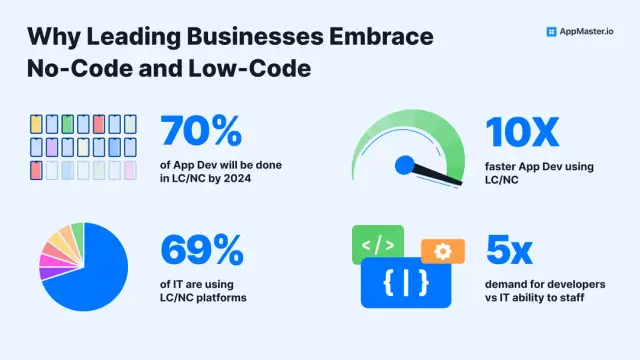The Impact of ERP Systems on Operational Efficiency
Explore the impact of ERP systems on businesses, with emphasis on operational efficiency, data-driven decision making, and seamless integration of various processes.

Understanding ERP Systems
Enterprise Resource Planning (ERP) systems are comprehensive software solutions designed to modernize and integrate all business processes, resources, and data across an organization. They allow organizations to increase efficiency and make more informed business decisions by unifying various aspects of a company, for example finance, human resources, and supply chain management.
The main idea behind ERP systems is to create a single information source that simplifies the flow of data across departments and minimizes the need for redundant data entry. This automation saves time, enhances accuracy, and simplifies communication both within the company and with external stakeholders. As a result, organizations can better manage resources, reduce delays, and improve the performance.
The Evolution of ERP Systems
The concept of ERP systems evolved from Material Requirements Planning (MRP), which was initially developed to manage manufacturing processes and inventory control. MRP software assisted in determining the quantity and timing of materials needed for production, allowing manufacturers to optimize inventory levels and reduce manufacturing costs.

In the 1980s, MRP evolved into Manufacturing Resource Planning (MRP II), which expanded the scope beyond inventory control to include other aspects of manufacturing management such as financial planning, human resources, and capacity planning. This broader approach enabled organizations to better synchronize and optimize their manufacturing processes. The industry continued to evolve in the 1990s with the introduction of the first ERP systems, which expanded the scope to encompass all business processes, not just manufacturing.
The term "Enterprise Resource Planning" became the umbrella term for software that integrated functions across the entire organization, providing a single platform to manage diverse aspects like finance, HR, supply chain, and customer relationship management. With the rise of the internet and advancements in technology, ERP systems have continued to evolve, incorporating new features such as advanced analytics, cloud-based deployment, and mobile compatibility. Today, modern ERP systems offer a wide range of features designed to help businesses of all sizes and industries achieve increased operational efficiency, adaptability, and growth.
Key Features of Modern ERP Systems
Modern ERP systems have evolved significantly since their early days, offering a wide range of features to support various business processes and needs. Here are some of the key features you can expect in a contemporary ERP solution:
- Centralized Database: A crucial feature of ERP systems is the centralized database, where all information from different departments is stored and can be accessed by authorized users in real time. This helps to eliminate data silos and ensures all stakeholders have access to up-to-date, accurate information.
- Finance and Accounting: ERP systems often come with financial management modules, including accounts payable, accounts receivable, general ledger, and budgeting functionality. Such modules can track financial data in real time, automate processes, and produce in-depth financial reports to aid decision-making.
- Supply Chain and Inventory Management: Effective supply chain management is key for businesses looking to optimize operations and reduce costs. ERP systems offer modules to manage procurement, production, inventory, shipping, and receiving, enabling organizations to reduce lead times and maintain optimal inventory levels.
- Human Resources Management: ERP systems can also incorporate HR modules to facilitate effective management of employees and workforces. Functions like payroll processing, benefits administration, time and attendance tracking, and performance evaluation can all be handled within the ERP system.
- Customer Relationship Management (CRM): To help organizations stay connected with their customers and deliver outstanding service, ERP systems may include CRM modules. These modules enable businesses to manage leads, sales, marketing, and customer support, as well as store and analyze customer data to guide marketing strategies and customer engagement efforts.
- Analytics and Reporting: Modern ERP systems come equipped with powerful analytics and reporting capabilities, enabling businesses to gain insights from their data and make informed decisions. Features such as customizable dashboards, real-time data visualization, and in-depth reporting allow for better decision-making and enhanced forecasting accuracy.
- Cloud-based Deployment: The transition to cloud computing has led to an increase in demand for cloud-based ERP systems. This deployment model offers several advantages, such as lower upfront costs, greater scalability, easier updates, and improved accessibility from various devices and locations.
- Mobile Compatibility: In today's increasingly mobile world, many ERP systems offer mobile applications or browser-based access, allowing employees to access critical data and perform tasks from their smartphones or tablets. This enables businesses to stay agile in the face of a changing work environment and ensures information is always available when required.
These features, along with many others, make modern ERP systems powerful tools for businesses seeking to improve operational efficiency, reduce costs, and gain a competitive advantage in the market.
Impact of ERP Systems on Operational Efficiency
One of the primary reasons businesses implement Enterprise Resource Planning (ERP) systems is to enhance operational efficiency. By providing a comprehensive platform that integrates multiple aspects of a business, ERP systems play a pivotal role in streamlining processes, reducing manual tasks, and optimizing resource utilization. Let's explore the various ways in which ERP systems contribute to boosting operational efficiency.
Streamlining Business Processes
ERP systems bring order and structure to the chaotic world of business processes. These software solutions integrate various functions like finance, human resources, supply chain management, and customer relationship management, making it easier for businesses to understand and manage the interconnections between these functions. By offering a unified platform, ERP systems ensure that all processes follow a standardized, well-defined workflow, eliminating redundancies and improving overall efficiency.
Reducing Manual Tasks
Automation is an essential component of modern ERP systems, as it minimizes the time-consuming and error-prone nature of manual tasks. By automating repetitive processes, ERP systems free up valuable time for employees, allowing them to focus on more strategic, value-added activities. In turn, this helps to boost productivity and reduce the risk of errors that can negatively impact business performance.
Enhancing Information Accuracy
ERP systems provide a single source of truth for businesses by consolidating data from various sources into one centralized database. This ensures that all departments work with the same, accurate information, reducing discrepancies and miscommunications among team members. Accurate information is paramount to making informed decisions, and ERP systems help to enhance data integrity by validating, processing, and sharing the data consistently across the organization.
Real-Time Business Insights
One of the significant advantages of ERP systems is their ability to provide real-time visibility into business performance. With instant access to key metrics like sales, expenses, production rates, and employee performance, managers can quickly identify issues or opportunities and respond accordingly. Real-time data also enables businesses to make proactive adjustments to their strategies, ultimately enhancing operational efficiency and minimizing negative impacts on the bottom line.
ERP Systems and Data-Driven Decision Making
Data-driven decision-making is an increasingly essential aspect of modern business management. Given the vast amount of data generated by businesses, it's crucial to have an ERP system capable of capturing, analyzing, and leveraging this information to improve decision-making processes. Here are a few areas where ERP systems can contribute to data-driven decision-making.
Monitoring Performance and Identifying Patterns
ERP systems enable businesses to track and analyze important data points like financial performance, customer satisfaction, and employee productivity. The ability to monitor these metrics in real-time can help managers quickly identify patterns or trends that require attention or action. By offering customizable dashboards, modern ERP systems make it easy for decision-makers to get a visual representation of their organization's performance and gain valuable insights at a glance.
Predictive Analytics
Modern ERP systems include predictive analytics capabilities, which allow businesses to leverage historical data to anticipate future trends accurately. By analyzing past performance and identifying patterns, businesses can make more informed decisions about resource allocation, pricing strategies, and sales targets. Predictive analytics also helps businesses mitigate risks and uncover new opportunities, ultimately contributing to a more sustainable, efficient business model.
Scenario Planning and DR
ERP systems assist decision-makers in running various "what-if" scenarios to better understand the consequences of different decisions. Scenario planning enables companies to evaluate the potential benefits and risks of alternative strategies before committing to a final decision. Moreover, data-driven scenario planning can help businesses prepare for potential disruptions or disasters, ensuring more efficient disaster recovery (DR) processes in the face of unexpected events.
Integrating ERP Systems with Other Business Tools
To maximize the benefits of an ERP system, you need to integrate it with other business tools and applications. Integration can offer a seamless exchange of information and streamline workflows across various systems, ensuring consistency across the organization. Here are some ways businesses can integrate ERP systems with other tools.
APIs and Web Services
Application Programming Interfaces (APIs) and web services are popular methods for integrating ERP systems with other applications. APIs allow different systems to exchange data and communicate with each other by providing a standardized way to access the functions and resources of each app. Web services, on the other hand, enable communication between systems over the internet using standardized protocols like XML and JSON. By adopting APIs and web services, businesses can create a cohesive tech stack that enhances operational efficiency and facilitates data-driven decision-making.
Middleware Solutions
Middleware solutions can be used to create a bridge between ERP systems and other applications, allowing for seamless data transfer and communication among different systems. Middleware tools offer a centralized platform for managing and monitoring integrations, making it easier for businesses to maintain their overall IT environment. By using middleware, businesses can build custom integrations tailored to their specific needs and requirements, providing a flexible, scalable solution for system integration.
No-Code and Low-Code Integration
No-code and low-code platforms, such as AppMaster, offer an accessible way for businesses to create custom integrations without the need for extensive programming knowledge. These platforms allow users to build connections between systems using a visual, drag-and-drop interface, making it easier to link different applications and create seamless workflows. No-code and low-code integration tools can enable businesses to improve operational efficiency by connecting their ERP systems with other essential tools like CRM, marketing automation platforms, and analytics software.

ERP systems play a vital role in enhancing operational efficiency, supporting data-driven decision-making, and enabling seamless integration with other business tools. By investing in an ERP system that aligns with their specific needs and requirements, businesses can unlock new levels of efficiency, productivity, and profitability, ensuring long-term success.
Choosing the Right ERP System for Your Business
Selecting the right ERP system is essential because the right choice will enable your organization to streamline its workflow and achieve maximum operational efficiency. Here are some factors to consider when choosing the right ERP system for your business:
- Business Requirements: Analyze your business processes and identify the primary pain points or inefficiencies that an ERP system can address. Determine the features and functionality that would best support your organization's goals.
- Budget and Pricing: Determine how much you are willing to invest in an ERP system and compare the various options that fit within your budget. Be sure to consider the total cost of ownership, including licensing, training, implementation, and ongoing maintenance.
- Scalability: Choose an ERP system that can support the growth of your organization and adapt to your changing needs. Scalable ERP systems allow you to add new modules, users, and locations as your business expands, without incurring significant additional costs.
- Industry-Specific Features: Select an ERP system that caters to the unique requirements of your industry. Industry-specific ERP systems include tailored modules for managing processes like those in manufacturing, retail, or healthcare.
- Ease of Use: Ensure that the ERP system you choose has an intuitive interface, making it user-friendly for individuals throughout your organization. A straightforward user experience will help ensure a smoother adoption process.
- Integration: Assess how well the ERP system integrates with your existing software and applications. Seamless integration is crucial for reducing time-consuming manual data entry and ensuring data consistency across systems.
- Vendor Support: It's critical to choose an ERP vendor that provides quality support, including ongoing training, updates, and assistance with implementation, customization, and troubleshooting.
- Deployment Options: Evaluate whether you prefer an on-premises ERP system or a cloud-based system. On-premises systems generally require a higher upfront investment and ongoing maintenance, while cloud-based systems have lower upfront costs and provide greater flexibility.
How AppMaster Can Help You Build Custom ERP Solutions
If your organization has unique needs that aren't met by off-the-shelf ERP systems, consider building a custom ERP solution using a no-code platform like AppMaster. AppMaster provides a powerful and efficient approach to developing web, mobile, and backend applications with no coding experience required. By leveraging the capabilities of AppMaster, you can build a custom ERP solution tailored to your specific business requirements. Here's how AppMaster can help you create a bespoke ERP system:
- Visual Development: Using AppMaster's visual BP Designer, you can create custom data models, business logic, REST API, and WSS endpoints without writing any code. This enables you to design an ERP system that adheres to your organization's unique process workflows.
- Streamlined Integration: AppMaster allows you to integrate your custom ERP solution with existing systems and applications seamlessly using APIs, ensuring a cohesive and efficient data flow between different tools.
- Scalability: The applications built on AppMaster's platform are highly scalable, supporting enterprise and high-load use cases. Your custom ERP solution can grow alongside your business, ensuring sustained operational efficiency.
- Swift Deployment: AppMaster streamlines application development, deployment, and maintenance, making the process 10x faster and 3x more cost-effective. This allows your organization to have a tailored ERP system up and running in a fraction of the time it would take using traditional development methods.
- Flexible Subscription Options: AppMaster offers various subscription tiers to cater to different business sizes and needs. This enables you to create a custom ERP solution that aligns with your organization's budget and aspirations.
Conclusion
ERP systems have a significant impact on operational efficiency, enabling businesses to streamline processes, make data-driven decisions, and achieve greater success. Choosing the right ERP system for your business requires careful consideration of factors like business requirements, budget, scalability, and industry-specific features.
For organizations seeking a tailored ERP solution, a no-code platform like AppMaster can help create custom web, mobile, and backend applications that align with unique business requirements. By harnessing the power of AppMaster, your organization can build and deploy a bespoke ERP system that maximizes the potential of your operations and drives success.
FAQ
An ERP (Enterprise Resource Planning) system is a comprehensive software solution that integrates various processes and resources across a business, providing a unified platform to manage diverse aspects like finance, HR, supply chain, and customer relationship management.
ERP systems improve operational efficiency by streamlining business processes, automating manual tasks, improving information accuracy, enabling data-driven decisions, and offering real-time visibility into business performance.
Data plays a crucial role in ERP systems, as it is used for tracking and analyzing business performance, predicting future trends, and making informed, data-driven decisions that drive efficiency and profitability.
Businesses can integrate ERP systems with other tools using APIs (Application Programming Interfaces), web services, or middleware to ensure seamless data transfer and communication between different systems and applications.
To choose the right ERP system, consider factors like business requirements, budget, scalability, industry-specific features, ease of use, and the ability to integrate with existing systems and applications.
Yes, you can build a custom ERP solution using no-code or low-code platforms like AppMaster, which allows you to create tailored applications without needing extensive coding knowledge or experience.
Industries that can benefit from ERP systems include manufacturing, retail, healthcare, financial services, education, and more. Essentially, any business seeking to streamline operations, improve efficiency, and enhance decision-making can benefit from implementing an ERP system.
Challenges of implementing an ERP system include the initial investment, ensuring data quality, employee training, managing organizational change, and establishing efficient and accurate workflows.





